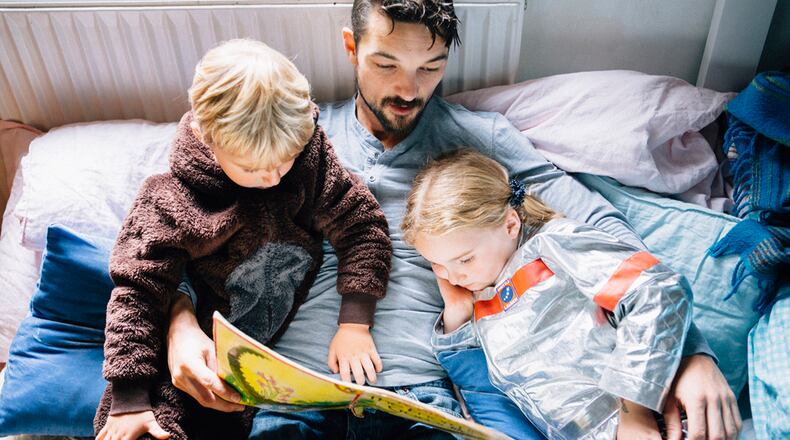“Charlotte’s Web,” “Stellaluna” and “The Ugly Duckling” are among the innumerable children’s books written to teach kids lessons through situations and images involving animals.
But a new study says books that feature humans learning lessons, instead of animal characters, stick with children more and allow for more insight into application of values and morals.
The study, conducted by researchers at the University of Toronto's Ontario Institute for Studies in Education (OISE) and published in the journal Developmental Science, found that children who read a book with human characters were more affected than those who read a book with animal characters.
In an experiment, nearly 100 children between the ages of 4 and 6 were read one of three books: Little Raccoon Learns to Share by Mary Packard, which illustrates a fictional raccoon who learns that sharing makes one feel good and proves beneficial to all involved in the action; a version of the story in which the animal illustrations were replaced with human characters; and a control book about seeds.
The experiment found that children who were read the book with the human characters were more willing to share later in the day than those who were read the book with animal characters. And “there was no difference in generosity between children who read the book with anthropomorphized animal characters and the control book; both groups showed a decrease in sharing behavior,” the researchers found.
Reading a book about sharing “had an immediate effect on children’s pro-social behavior”, according to the study. “However, the type of story characters significantly affected whether children became more or less inclined to behave pro-socially. After hearing the story containing real human characters, young children became more generous. In contrast, after hearing the same story but with anthropomorphized animals or a control story, children became more selfish.”
"A growing body of research has shown that young children more readily apply what they've learned from stories that are realistic ... (but) this is the first time we found something similar for social behaviors," said Patricia Ganea, who led the study, according to The Guardian. "The finding is surprising given that many stories for young children have human-like animals."
Read more at The Guardian and read the study here.
About the Author
The Latest
Featured


